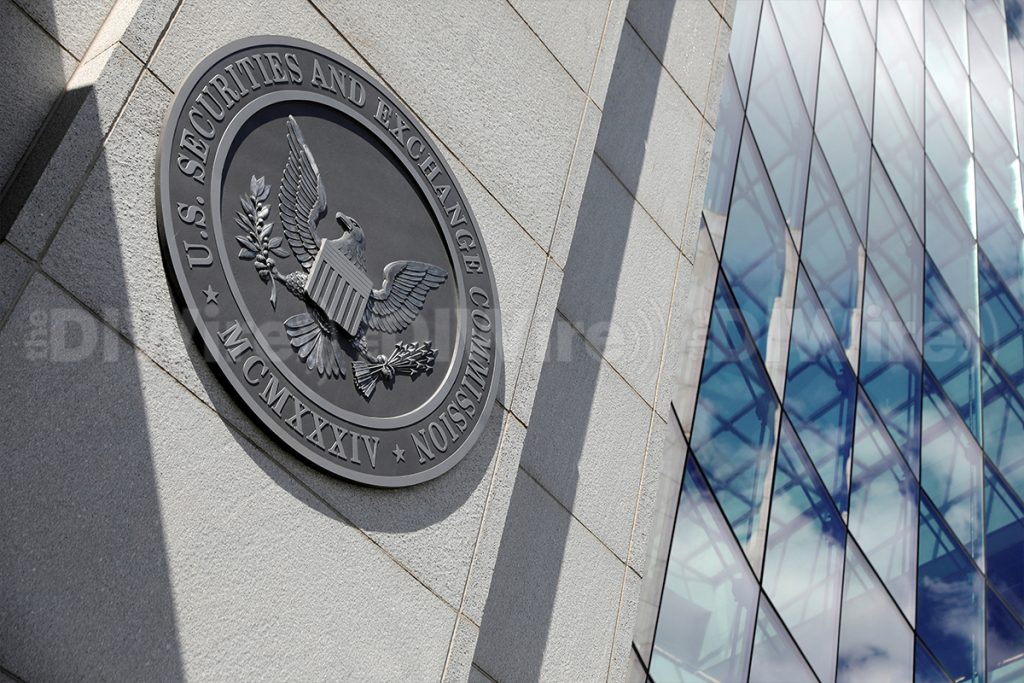US Supreme Court Signals It Could Limit SEC In-House Enforcement

Conservative U.S. Supreme Court justices on Wednesday signaled skepticism toward the legality of certain proceedings conducted in-house by the Securities and Exchange Commission to enforce investor-protection laws – a case that gives them an opportunity to further undercut the power of federal agencies.
The court, which has a 6-3 conservative majority, heard arguments in an appeal by President Joe Biden’s administration of a lower court’s ruling that deemed the SEC’s tribunal proceedings unconstitutional before administrative judges installed by the agency that can lead to financial penalties for infractions.
The conservative justices focused on a part of the 2022 ruling by the New Orleans-based 5th U.S. Circuit Court of Appeals that found that in-house proceedings violated the U.S. Constitution’s Seventh Amendment right to a jury trial.
Texas-based hedge fund manager George Jarkesy, who the SEC fined and barred from the industry after determining he had committed securities fraud, challenged the legality of the agency’s system.
His lawsuit was supported by numerous conservative and business groups, which long have complained about the regulatory reach of the federal “administrative state” in areas such as energy, the environment, climate policy, workplace safety and financial regulation.
The conservative justices expressed concern that SEC administrative proceedings are conducted for certain charges, such as fraud, without a jury, when similar cases alleging fraud in federal court would have one.
“It does seem to me to be curious that – and unlike most constitutional rights – you have that right until the government decides that they don’t want you to have it. That doesn’t seem to me the way the Constitution normally works,” Chief Justice John Roberts said.
“What sense does it make to say the full constitutional protections apply when a private party is suing you, but we’re going to discard those core constitutional, historic protections when government comes at you for the same money?” Justice Brett Kavanaugh asked Justice Department lawyer Brian Fletcher, defending the SEC’s system.
A ruling by the court against the SEC could reduce or delay action against misconduct by brokers, investment advisers and others, and potentially frustrate enforcement at other federal agencies as well. Fletcher warned of “wide repercussions” from such a decision, noting that two dozen agencies impose penalties in administrative proceedings.
The SEC in recent years has faced a series of legal attacks even as the Supreme Court’s conservatives display skepticism toward expansive federal regulatory power. The court in 2018 faulted the way the SEC selected its in-house judges, and in April made it easier for targets of agency actions to mount challenges in federal court.
The court also has curbed the power of other agencies in recent years including the Environmental Protection Agency.
SEC critics have said the agency has an unfair advantage litigating cases before its own judges in “administrative proceedings” rather than before a jury in federal court. The SEC, which enforces various U.S. laws that protect investors, pursued 270 new in-house proceedings in the fiscal year that ended on Sept. 30, compared to 231 in federal court.
Liberal Justice Elena Kagan told Jarkesy’s lawyer Michael McColloch that Congress gave the SEC more power after the Great Depression of the 1930s and later financial crises to combat investor fraud given that other remedies were inadequate.
“Is Congress’ judgment that more powers were needed within an administrative agency entitled to no respect?” Kagan asked.
Some justices asked questions that suggested a ruling against the SEC could be narrow. Roberts appeared interested in McColloch’s view that certain SEC actions could be brought in-house, such as those involving taxes or Social Security benefits, while others would need to go to federal court.
The SEC in 2011 began investigating Jarkesy, who founded two hedge funds with his Houston-based investment advisory firm, Patriot28 LLC. The funds had about 120 investors and roughly $24 million in assets under management.
An SEC administrative judge found Jarkesy and his firm violated the Securities Act of 1933 and other laws including by misrepresenting the identity of the funds’ auditor and value of the holdings. The SEC then ordered them to pay a $300,000 civil penalty and Patriot28 to disgorge nearly $685,000 in ill-gotten gains.
The 5th Court threw out the SEC’s decision. In addition to its conclusion about the right to a jury trial, the 5th Circuit found that Congress gave the SEC too much power to choose whether to bring cases in-house, and that job protections for its administrative judges make them too difficult to remove, infringing on presidential powers under the Constitution.
In another case involving agency powers, the justices in October heard a constitutional challenge by the payday loan industry to the Consumer Financial Protection Bureau’s funding structure. Rulings in that case and the SEC one are expected by the end of June.
(Reuters contributed to this report.)

